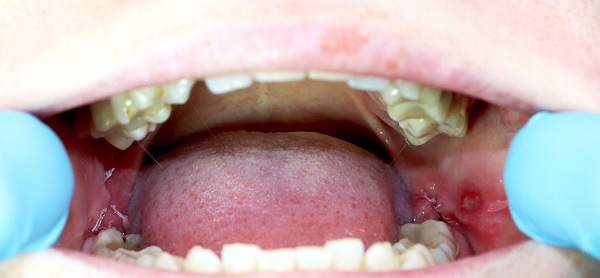Last Updated on: 4th December 2024, 05:11 pm
Food and Aftercare for Speedy Recovery

Foods to eat after wisdom teeth removal are crucial, as dental injuries lacking prompt treatment can result in subsequent oral issues necessitating surgical remedies. This scenario applies to unattended cavities, tooth fractures, or gum disease. A pivotal query arises: What dietary regimen is advisable following a tooth extraction or surgical procedure? Moreover, what supplementary measures facilitate a swift recuperation? The responses significantly impact the handling of the postoperative phase.
The most frequent surgical interventions are:
-
- Periodontal surgery: the procedure in cases of periodontitis. This intervention displaces the tissue near the tooth, making it easier to remove the bacterial plaque accumulated between the inner layer of the gum and the root of the tooth.
- Exodontia: The most common is the extraction of a tooth for various reasons. This includes wisdom teeth, also known as the third molars, which need to be removed when they do not have enough space.
- Bone grafts: This procedure is performed when a part of the jaw bone has been lost, a situation that occurs due to the absence of a tooth and the subsequent deterioration of the bone.
- Dental implants: The purpose of this intervention is to preserve dental aesthetics and functionality of the teeth. It is achieved by replacing the lost tooth with a molded piece that simulates the shape and appearance.
The average total recovery time for these procedures is between seven and fifteen days – depending upon the type of intervention – a period during which it is necessary to take some care to facilitate the effectiveness of the treatment. A full recovery of bone tissue can take up to six months.
Post-surgery care
After the intervention, it is necessary to prevent risks while facilitating recovery. Management is required of subsequent bleeding, entailing oral hygiene practices to keep the intervened area clean, without affecting healing. The use of some medications and an adequate diet are relevant in the days following a surgical procedure.
In the first six hours: Following the procedure, it is recommended not to consume food and/or drinks. The first intake, after this time, should be soft, cold, or room-temperature foods.
Subsequent bleeding: Bleeding is normal after surgery. It is recommended to place gauze in the treatment area and tighten the bite to stop bleeding. It is important to facilitate the formation of a blood clot since it facilitates tissue regeneration. To prevent bleeding and facilitate healing, in the following 24 hours, do not rinse, brush the intervention area, or use a straw. Do not consume hot drinks, drink alcohol, or smoke.
The day after surgery, you can do a gentle rinse with a solution of warm water and salt or a medicated rinse prepared by the dentist to clean the area.
Physical exercise: In the initial period of the recovery stage, it is important to rest and not bend over or do physical activity that requires effort.
At bedtime: Keep the head higher than the body.
Management of pain and inflammation: In addition to the medicine included in the treatment, cold or ice compresses can be applied, according to the dentist’s guidance, at 10-minute intervals. Direct ice should not be applied to the area, nor should the time of the compresses be exceeded to avoid skin lesions.
Regularly, the dentist will prescribe analgesic medications and antibiotics to manage pain, reduce inflammation, and avoid possible infections.
Regular side effects

In some cases, discoloration of the skin occurs because blood expands under the tissue. This is a normal effect that can occur two or three days after the intervention and disappears later. If the change in skin tone persists, consult the treating dentist as soon as possible.
It is also regular and even frequent -after the intervention, there is a slight rise in body temperature. If it persists, consult your treating oral health professional.
What Foods to eat after wisdom teeth removal?
Choosing which foods to consume after an intervention is fundamental for a successful recovery and achieving the expected therapeutic result. On the first day, it is recommended to eat soft foods and gradually incorporate semi-soft foods into the diet.
A proper dental diet will include pureed or compote foods, jellies, and creams, combined with other soft ones that facilitate chewing, without generating pressure in the intervened area.
To facilitate prompt healing, the diet should be rich in nutrients. These are some suggestions for the days following surgery:
-
- Vegetable and fruit purees provide vitamins and minerals. However, it is recommended to avoid acidic fruits, as they can irritate.
- Vegetable soup and chicken broth are good options that are easy to consume, rich in nutrients, and contribute to hydration. Plus, they do not require chewing. They should be consumed at a medium temperature because excessive heat can irritate the wound.
- Boiled eggs or soft tortillas are a source of protein and nutrients.
Eating cold foods manages pain and inflammation for the first few days after surgery but should be supplemented with soft, nutritious food.
What kind of food should be avoided after surgery?

After the procedure, it is important to avoid foods that may irritate or affect the wound:
-
- Avoid very hot and sugary drinks. This includes carbonated drinks and sodas.
- Avoid the consumption of hard cheeses, cottage cheese, and pot cheese.
- It is necessary to avoid the consumption of sticky products, candies, chewing gum, and similar products that can adhere to the wound and generate adverse effects, requiring more complex management.
- Chips, cookies, peanuts, nuts, dried fruit, candy, and other crunchy or hard foods put pressure on the affected area and delay the healing process.
- Do not eat tomato, paprika, pickles, spicy foods, seeds, cereals, acidic foods or drinks, meat, or other foods that require hard chewing.
Recommendations that help in recovery
Any surgery required to recover a good oral health condition may be painful and require care to avoid infections or complications.
Some simple practices that the patient may have on hand help achieve good management during the post-surgical stage:
-
- Eat slowly and chew on the opposite side of the intervention, avoiding food circulating through that area of the mouth.
- Eat small bites and avoid large-volume or difficult-to-eat foods.
- Prefer bland foods such as soups, broths, purées, or shakes.
- Drink plenty of fluids, avoiding sugary or carbonated drinks. Ensuring good hydration contributes to recovery.
The participation of the patient in the recovery process is relevant
-
- Eat soft foods at a medium temperature and avoid chewing in the area of surgery.
- Do not exercise and avoid activities that require effort, as this can affect the consistency and stability of the blood clot, with obvious implications for the recovery process. The dentist will give you instructions in this regard.
- Practice good dental hygiene.
- Follow the post-surgery control.
- Follow the indications of the dentist who carries out the treatment.



Frequently Asked Questions
You should be capable of resuming your normal diet after 7 days. However, it is advisable to continue avoiding extremely crunchy and hot foods for a few more days. If you have stitches, they will probably dissolve and come out within around a week, eliminating the need for professional removal.
Furthermore, dairy products pose a greater challenge for digestion due to their casein protein content, which considerably slows down the digestion process and heightens inflammation in the body. This can lead to a delay in the healing process and may result in increased discomfort.
Certain foods that may appear soft, like macaroni and cheese, can still pose challenges if they have a slightly chewy texture. This is particularly relevant during the initial days after the procedure. To address this, overcooking the pasta to achieve a very soft consistency should help mitigate the issue.
Numerous experts in oral surgery suggest incorporating bananas into your diet post-surgery. Their gentle texture is conducive to chewing without irritating to the
Contact Us
If you have any questions about dental conditions that cause ear pain or other topics, you can contact us at Channel Islands Family Dental as well as our page on Facebook. We look forward to your visit and we will make a timely diagnosis. Our dentists in Oxnard, Santa Paula, Ventura, Newbury Park, and Port Hueneme will be able to guide you toward the best treatment to take care of your health and give you back your best smile.
Bibliography
- Cleveland Clinic (November 18, 2021) Oral Surgery / https://my.clevelandclinic.org/health/treatments/22085-oral-surgery
- Birbe Clinic (January 7, 2021) What to eat to recover from maxillofacial surgery / https://birbe.org/blog/consejos-que-comer-tras-una-cirugia-maxilofacial/
- KIN (s.f.) Can I eat after an extraction? / https://www.kin.es/alimentos-extraccion-dental/
- KIN (s.f.) 5 tips for a speedy recovery after oral surgery /https://www.kin.es/consejos-recuperacion-cirugia-oral/
- CIMEV Institute (February 15, 2017) Instructions and recommendations for the postoperative period of oral surgery and implantology interventions / https://cimev.es/instrucciones-despues-intervenciones-cirugia-bucal-e-implantologia/
- Romero-Ruiz, Manuel Mª, Herrero-Climent, Mariano, Torres-Lagares, Daniel, Gutiérrez-Pérez, José Luis (April 2006) Post-surgical pain and inflammation control protocol. A rational approach /https://scielo.isciii.es/scielo.php?script=sci_arttext&pid=S1138-123X2006000200005



